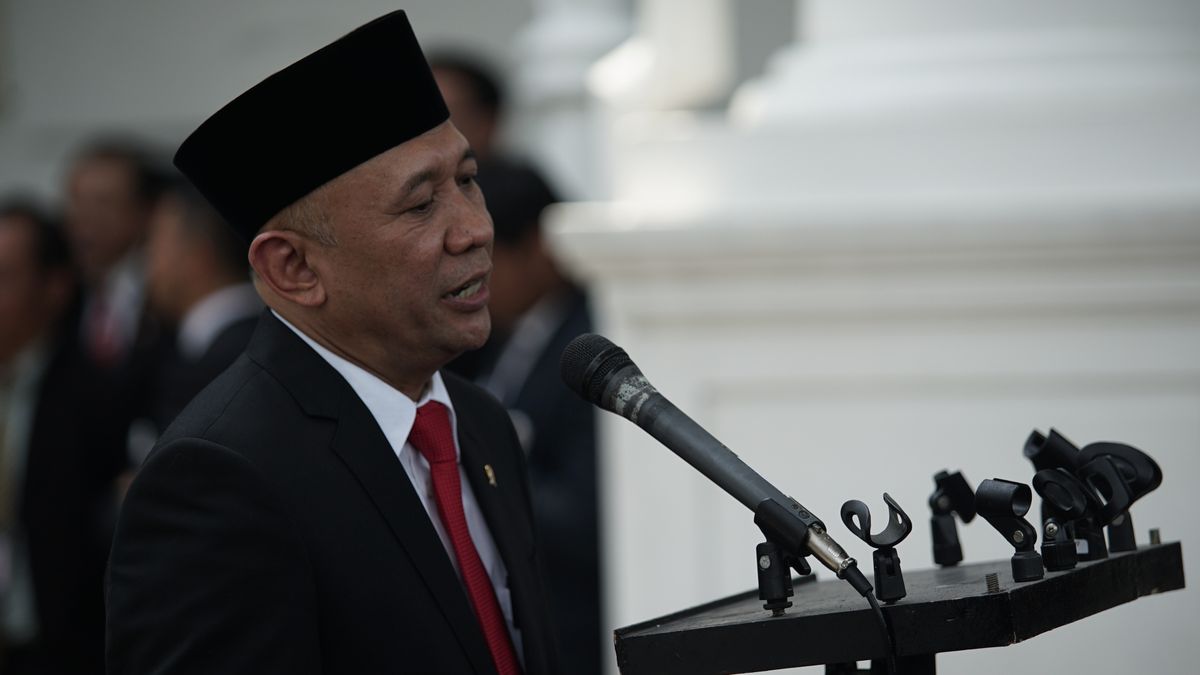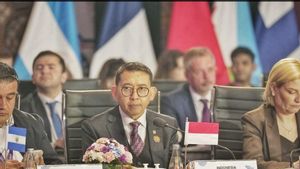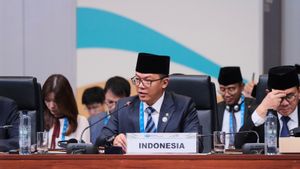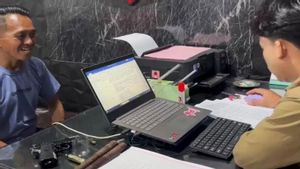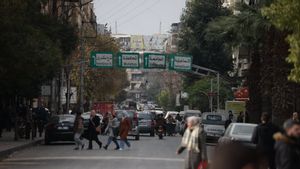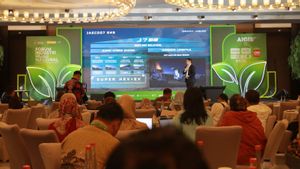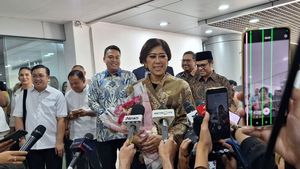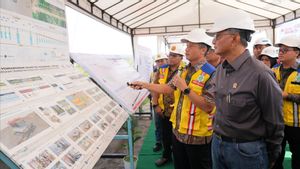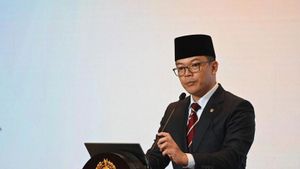JAKARTA - The Ministry of Cooperatives and Small and Medium Enterprises (Kemenkop UKM) discussed the drafting of the Omnibus Law on Job Creation. The Kemenkop UKM will ensure that the substances included in the Omnibus Law have a positive impact on cooperatives and MSMEs.
For this reason, Kemenkop and UKM formed a team consisting of experts and researchers to conduct an objective study of the substances that will be included in the Omnibus Law on Job Creation.
Minister of Cooperatives and SMEs Teten Masduki said in a meeting with the team on Monday 6 January that President Jokowi had specifically requested a study on the impact of the Omnibus Law on KUMKM.
"The president asked for a study on the impact of the Omnibus Law on KUMKM before it was submitted to the DPR. Omnibus Law must be ensured to provide equal facilities to all business actors," said Teten.
After the meeting, the Secretary of the Ministry of Cooperatives and SMEs, Rully Indrawan, said that the Omnibus Law draft that will be submitted to the Indonesian Parliament is really to protect the interests of cooperative and MSME actors.
"Ideally, it will really be in the interests of the national economy, especially for UMKM players," said Prof. Rully.
This means, since they started a business with easier and simpler permits, wage issues, to tax matters. According to him, don't let the Omnibus Law produce something that does not benefit MSMEs. The negative impact that we feared could be anticipated from the start.
"In essence, we will protect MSMEs. Because, if the treatment is equated with big efforts, of course it will be detrimental to MSME players. For taxes there will be a separate Omnibus Law at the Ministry of Finance. What we discuss is Omnibus Law related to job creation," said Rully.
Rully admitted, President Jokowi hoped that the UMKM Omnibus Law could be completed immediately so that it could be submitted to the DPR in the second week of January 2020. He said he would give a second opinion regarding the development of cooperatives and MSMEs in Indonesia.
"God willing, on Saturday tomorrow we can only tell you about the Omnibus Law regarding KUMKM," said Rully.
UMKM Tax
Yustinus Prastowo, a tax expert who is a member of the team, said that the momentum of the Omnibus Law discussion must be firm in discussing UMKM taxes. "Not only for big business taxes, but also to encourage tax treatment for MSMEs as well," said Yustinus.
According to Yustinus, this is a golden opportunity to include policies, especially taxes for cooperatives and SMEs in order to get incentives. "This means that there must be different treatment compared to big businesses, so that MSMEs can compete. For example, SHU cooperatives are still the object of income tax. Corporations can get reduced rates, while cooperatives cannot. So, it needs relaxation so that KUMKM can develop," Yustinus explained.
In addition, said Yustinus, regarding the 0.5 percent SME tax for actors with a turnover of Rp.4.8 billion per year, they must also enter the Omnibus Law. "The regulation ignores the micro and small businesses, all are considered medium-sized so they receive the same treatment. Obviously, this hinders the growth of SMEs," said Yustinus.
Yustinus added, this is the right time to relax taxes for MSMEs. Because, waiting for the revision of the Income Tax Law will take a long time. The 0.5 percent SME tax needs to be reformulated because it does not differentiate between micro, small and medium enterprises. All are considered the same, "said Yustinus.
Yustinus' proposal, including micro businesses with a turnover of Rp. 300 million, could be subject to tax of 0.1 percent, and small businesses with a turnover of Rp1, 8 billion, to be subject to a tax rate of 0.5 percent. Anything above that can be taxed 1 percent. "If the normal rate is applied, how can it be competitive," said Yustinus.
Another thing that was highlighted by Yustinus was that there should be an integration of the concept of MSMEs, which so far have been different between ministries, agencies, and also Bank Indonesia. According to him, it needs a single definition related to MSMEs so that the treatment can be the same. This is a good opportunity, don't let this Omnibus Law be scattered from leaving MSME players who should be the backbone of the national economy.
The English, Chinese, Japanese, Arabic, and French versions are automatically generated by the AI. So there may still be inaccuracies in translating, please always see Indonesian as our main language. (system supported by DigitalSiber.id)
